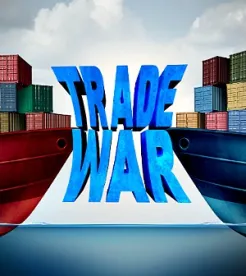Today, Hong Kong is once again the arena where the great powers settle their trade disputes.
Already in the 19th century, Hong Kong, China was one of the theatres of the Opium Wars (1839-1860), which confronted the United Kingdom, France and the Russian Empire – on one hand – and China on the other, caused by the interests on the opium trade. As a consequence of the Second Opium War, Hong Kong was ceded by China to the United Kingdom under the terms of a Nanjing Treaty signed on a UK navy ship. Today, Hong Kong is once again the arena where the major powers settle their commercial disputes.
In 1997, the United Kingdom returned the control of the Cantonese territory to China further to the terms of a Joint Declaration, and China’s highest state organ, the National People’s Congress, exercised its powers under China’s Constitution to pass a national law called the Basic Law of Hong Kong to establish the Hong Kong Special Administrative Region (SAR) with a high degree of autonomy, under the principle ‘One Country, Two Systems’ championed by the late Chinese leader Deng Xiaoping. Under the Basic Law, foreign affairs, national defense and security are among matters expressly reserved by the national government. In response to violent civil unrest in Hong Kong in the past year, which Beijing claims to be funded by foreign powers and external influences, the National People’s Congress passed a new national Law for Safeguarding National Security in Hong Kong, which took effect on June 30, 2020, rather than directly imposing the National Security Law of 2015 that already applies in Mainland China.
As tension for “trade war” and “war for supremacy” increased between the United States and China, the Trump Administration has unilaterally revoked “economic privileges” that may have an impact on tax, customs and financial matters that underpins Hong Kong as a trade and financial hub for the region, imposed sanctions against senior officials of the Chinese governments, and included large Chinese technology companies in the designated Entity List of the Department of Commerce. We find ourselves in a situation of increasing legal uncertainty and potential “cold war like” mentality in international diplomacy.
For a variety of reasons including its competitive tax environment, Hong Kong (the only city in China that practices common law) had become the natural gateway to China for both foreign investors and capital. On the other hand, large Chinese groups used Hong Kong not only as a meeting point with foreign investors but also as an access channel to foreign markets, as it possesses an adequate legal environment for Chinese investments abroad. The Hong Kong Stock Market is considered one of the most important and safe markets in the world; its design and security is comparable to the London Stock Market. Hong Kong was and still is the natural meeting place to conclude international operations both to China and from China to the world.
Behind China, the country most likely affected by this geopolitical puzzle is the United Kingdom, who is witnessing the crisis at its worst possible moment. On one hand, it needs to reinforce and strengthen its ties with the US and, on the other hand, it tries to maintain a good relationship with China (where its companies have important investments). Meanwhile, the United Kingdom needs to close in record-time a good agreement with the EU, which is currently adopting protectionist policies that seek to shield its markets from the entry of public and subsidized Chinese companies, as well as to limit investment in strategic areas for public order purposes and homeland security. The new “European policies” may lead the Chinese authorities to adopt “countermeasures” against European companies, which, along with current commercial tension, US sanctions, and Chinese antidote regulations, could convert their operations in Hong Kong into a real legal minefield.
The Hong Kong riots, the Trump Administration measures, the China Sea territorial conflicts, the struggle for technological supremacy, Taiwan’s ruling party now seemingly moving away from the established One China accord and policy, have placed Hong Kong, as the “Casablanca of the East” for agents around the world, in the middle of the perfect storm, and as an ideal candidate to become collateral damage. In the middle of this endless skein, it would seem that the Hong Kong SAR of the People’ Republic of China is once again the battleground for the great forces, which once fought for the control of opium, and now, compete for commercial and financial control of the region.



 />i
/>i

